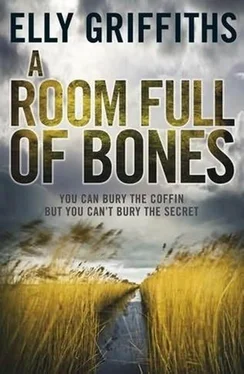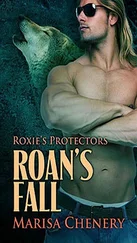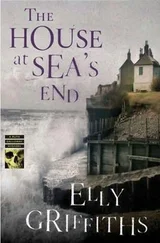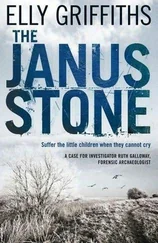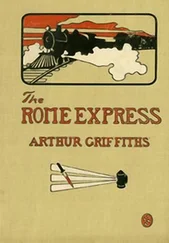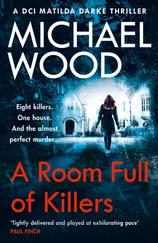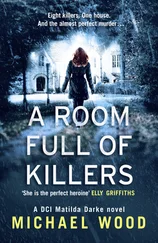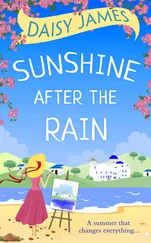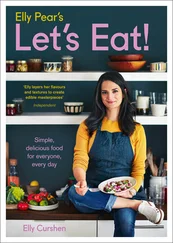Ruth turns to Max. ‘Do you want to come back to my place?’
Nelson, too, is participating in a ritual. He is sitting on Brighton beach eating fish and chips out of a paper bag. Tasted better from newspaper, he thinks. Why don’t they use newspaper anymore? He puts the question to Michelle.
‘Health and safety,’ she says knowledgeably. She is finishing the last of her chips, chasing the last grains of salt with a moistened finger. It is so rare for her to eat something so calorie-laden that Nelson watches her with genuine pleasure. For some reason, he isn’t feeling very hungry. He throws a chip onto the pebbles and three seagulls immediately swoop down on it. It’s getting colder now, though the sun is still warm on their faces. Behind them the carousel is playing its jolly, heart-breaking tune and, from the pier, they can hear the shrieks of people on the rides. A group of girls wearing bunny ears staggers past them, weaving in and out between deckchairs, falling over on the sloping shingle.
‘Hen night,’ says Michelle.
The day in Brighton was Michelle’s idea. Friday night’s meal was not a success. Nelson had got home late; Michelle had ended the evening in tears. But she woke on Saturday in a determinedly positive state of mind. Why not drive down to Brighton to see Rebecca? It’s a long drive but they could take Rebecca out for lunch and celebrate Harry’s birthday at the same time. And it has been a good day. Rebecca had told them firmly that she could only spare them an hour but they had taken her for lunch at Browns and bought her a number of pastel-coloured objects for her room. How many scatter cushions or strings of fairy lights could one student need, Nelson wondered. He didn’t say it aloud though. Shops full of novelty mirrors and cute lower-case writing make him feel nervous.
After Rebecca had wandered off to meet friends at the cinema, Nelson and Michelle had done the tourist things. They had shopped in the Lanes, admired the Pavilion from afar and walked on the pier. In the arcade, Nelson developed an obsession with winning a cuddly toy from one of the machines. He fed in twenty pence after twenty pence, only to watch the white fluffy cat fall in slow motion from the feeble clutches of the mechanical arm.
‘It’s a fix,’ he announced. ‘Impossible.’ When, later, he noticed a man carrying three of the fluffy cats, his indignation knew no bounds.
‘Why do you want a cuddly toy anyway?’ asked Michelle, slightly beadily.
‘It’s the principle of the thing,’ Nelson had said.
Now they are sitting on the beach watching the town get ready for the evening. The families are drifting away, to be replaced by more hen nights (L-plates, novelty police uniforms that make Nelson wince), foreign students in brightly coloured sportswear, men too well dressed to be straight. Nelson and Michelle walk between the piers, past archways that have been turned into night clubs and restaurants. All that is left of the old West Pier is a rotting iron structure like a Victorian birdcage, a hundred yards out to sea. Appropriately enough, the birdcage is full of birds – hundreds and hundreds of starlings swooping and soaring in the last of the evening sun, black against the violet sky. Nelson and Michelle stop to watch for a few minutes.
‘It’s a bit spooky, isn’t it?’ says Michelle. ‘Makes me think of that film, The Birds .’
Nelson grunts, he’s never seen the attraction of birds himself.
‘Are you OK, Harry?’
‘I’m fine. Come on, we’d better get to the car.’
But, as they walk through the tunnel towards the underground car park, Nelson realises that’s he’s not fine, not really. Come to think of it, he’s been feeling odd all day. He hadn’t fancied his food and even walking is an effort, as if his feet are encased in lead. Once or twice he has noticed the promenade, with its Regency hotels and barley-sugar railings, swooping and swirling in the most disturbing way. It is only when he gets to the car and the ground lurches again, so violently that he has to hold on to Michelle to keep his footing, that he realises the incredible truth. He feels ill.
Kate is asleep when Ruth arrives to collect her. ‘I’m sorry,’ says Sandra, ‘but we had a busy day. She hasn’t stopped.’ Kate has certainly stopped now, her head back, mouth slightly open, fingers still gripped around a grubby lump of pastry. ‘We made mince pies,’ explains Sandra. ‘A bit early but who cares. Do you want some?’
Ruth accepts a freezer bag full of mince pies while thanking Sandra profusely. She doesn’t mind that Kate is asleep. She needs time to think about the evening ahead. Max has said he’ll meet her at the cottage. ‘I’ll give Claudia a walk first,’ he said. ‘Shall I pick up a bottle of wine and a takeaway? Would that be a good idea?’ Ruth said it would but, privately, she thinks things are moving a little quickly. She had imagined a cup of tea and a chat, maybe some time admiring Kate or walking on the Saltmarsh; now they are having dinner together. It’s dark too and Kate is asleep. Awake, she is a distraction, almost a chaperone. Now she will snooze picturesquely in the background; they’ll have to rely on Claudia and Flint for light relief. Flint! What will he think about having a dog in the house? Ruth hopes he won’t go missing again. Maybe he’ll run to Bob’s house. She finds herself hoping that Bob will come home soon so that she isn’t left alone on the Saltmarsh with Max.
What is she afraid of? Isn’t this precisely what she wanted, what she has allowed herself to dream about over the stressful summer months when Nelson was out of bounds and Ruth was alone with her own anxieties? Yes it is, and Ruth knows that part of her fear is also anticipation. Her skin tingles, she is conscious of the touch of her clothes on her legs and arms. She feels slightly sick and, at the same time, extremely hungry. She hopes she will be able to have a shower before Max arrives. But will that look as if she is trying too hard, opening the door smelling of Badedas and toothpaste? Better than nappy sacks and last night’s supper hardening in the saucepan though. She drives through the dark roads, worrying and hyperventilating. She starts to hope that Max won’t turn up.
But when she draws up outside her cottage Max’s Range Rover is already there. When he opens the door Claudia shoots out, barking wildly. Ruth sees a ginger streak as Flint disappears into the long grass. She hopes he’ll come back soon. Ruth starts to lift out Kate’s car seat, fumbling with the straps.
‘Can I help?’ asks Max. He is looking at Kate. ‘She’s beautiful,’ he says softly.
‘She’s heavy,’ warns Ruth, but Max lifts the laden car seat easily with one hand. As he follows Ruth along the path, she can’t help thinking that they look like a parody of a nuclear family. Mum, Dad and baby returning from a day out. Not to mention the dog, currently sniffing excitedly under the blackberry bushes, and the (absent) cat. Ruth opens the door, kicking aside the post. Claudia rushes through to the kitchen and Ruth hears her drinking noisily out of Flint’s water bowl.
‘Shall I take Kate upstairs?’ says Max.
Now this really does feel like a step too far. Max has been to the house before but never upstairs. No one goes upstairs except Nelson that one time and, it now transpires, Judy and Cathbad. Besides, she hasn’t made her bed.
‘I’ll take her,’ says Ruth. ‘Make yourself at home.’
In the bedroom, Ruth takes off Kate’s outer layer of clothes and lays her in her cot, which is beside Ruth’s bed. There is a spare room, which is now almost clear, but Ruth finds herself curiously unwilling to move Kate. She likes hearing her breathing in the night, and it’s easier when Kate wakes up just to reach over and pick her up. They often end up sleeping in the double bed together, something that is much frowned upon by the baby books.
Читать дальше
